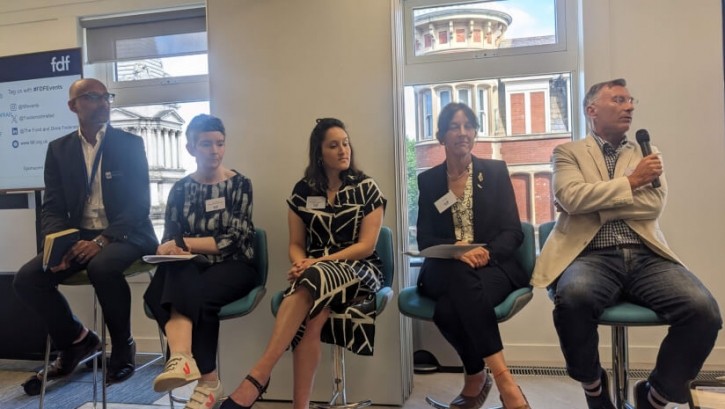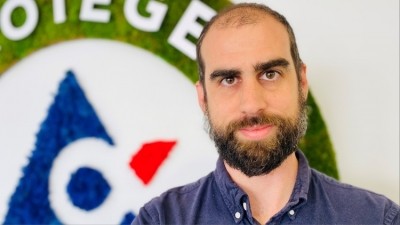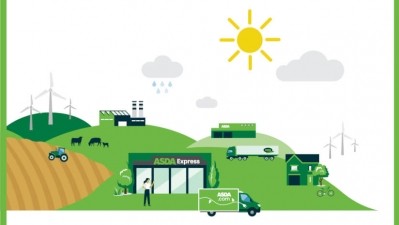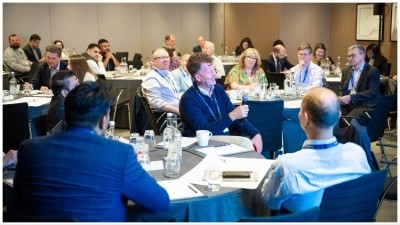News
Data harmonisation: ‘Industry experts need to do it’

The issues surrounding data harmonisation is clear – we have the capabilities to collect data but converting that information into meaningful action is difficult.
Take carbon tools as an example, more than 80 have been developed for quantifying farm emissions, according to environmental and agricultural advisers ADAS.
While the varying options for measurement are significant, our understanding and ability to do something with the data are sorely lacking.
“The market is trying […] but the plethora of schemes has created confusion,” Balwinder Dhoot, the FDF’s director of sustainability and growth, said at a recent roundtable held at the association’s HQ.
The roundtable had brought together experts from various areas of the industry to discuss developing a net zero strategy from farm to fork, and whether intentional or not, it highlighted the siloed, complex nature of the food system and all its voices.
Dhoot had been addressing the question Food Manufacture had posed during the Q&A, around how we square that circle – and in response said that there was good reason for government to intervene.
Adding further insight, Clare Mike, LEAF’s director of business development – an organisation linking sustainability with food and farming – said that while harmonisation is a challenge, the conversation needs to be “turned on its head”.
“I think it’s been tremendous market success that has got us to the point where harmonisation is so incredibly complex. It’s because there wasn’t regulation, because the government wasn’t involved, that these organisations have become what they are now and are so expert and unique in what they deliver,” she noted.
“That’s where the challenge of harmonisation lies, not the lack of appetite, but that we are a decentralised food system. We have lots of experts doing great things. If we move to a system where we want true harmonisation, one of the ways is it becomes regulated, [and] the government do it – but is the government specialist in all these areas?”
Her point is extremely valid – there have been many times where the food industry has criticised the government for its cack-handed approach, so would policy really be the answer?
“My heart tells me we should leave the experts [industry] to do it and somehow we need to come together in a better way,” she mused, but she also acknowledged that would be an uphill task.
“We are individual organisations with our own objectives, so that is easier said than done.
“If we could redesign this whole system we would; we’d start again, we’d have harmonisation.”
For Madeleine Prince, WRAP’s programme lead for climate action, government needs to play their part: “We definitely need multistate action and support and that includes government and businesses to support harmonisation of data standards.”
Commenting on WRAP’s involvement in a new collaborative 'integrated transition plan', she added that any new initiative needs to have legitimate backing. For this particular project, IGD told Food Manufacture that the Government are aware of the project and will be kept updated.
The work, which is being led by the Institution of Grocery Distribution in partnership with WRAP and consultancy group EY, is arguably a good example of the kind of cross collaboration we need.
The project will focus on three core areas:
- One consistent, robust body of evidence which can help drive aligned prioritisation and action across the food industry and wider ecosystem including government and the finance sector.
- A system transition plan, identifying key emissions drivers, with quantification of emissions reductions and costs, together with dependencies and risks and mitigations.
- Proposals for the enabling framework, including options for new policies with quantification of costs and benefits; together with action by industry and banks that would reinforce implementation of the plan.
Christophe Lavialle sales and business development director at RSK & ADAS agreed, pointing out that having one benchmark or tool may not be the silver bullet to our harmony woes.
This is an area his colleague, Dr Toby Townsend, ADAS Principal Consultant in the Climate and Sustainability, explored earlier this year following the publication of an ADAS harmonisation report on behalf of Defra.
“Although some emissions are directly proportional to the amount of input, like tractor diesel emissions, some of the biggest emission sources are influenced by a range of farm-specific conditions and are therefore more challenging to calculate,” he said at the time.
“For example, when applying nitrogen fertiliser to a field, we get nitrous oxide emissions and those emissions are not only influenced by the quantity of nitrogen applied but also factors like management practices, soil properties, and weather conditions.”
The IDG-led net zero plan considers this approach and will pull in data from various stakeholders, including the FDF, NFU and BRC to name a few, in an effort to bring standardisation across the supply chain.
So, whilst we should applaud our innovations as an industry so far, any further initiatives or toolsets could be considered an unhelpful addition.
In other news, food tech firm OSY Group has secured funding for international expansion.
















